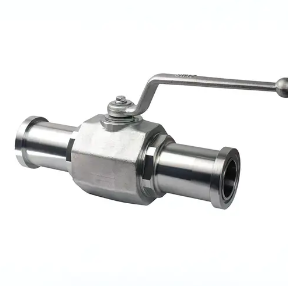Hydraulic ball valves are essential components in hydraulic systems, used to control the flow of fluid in various industrial applications. These valves consist of a ball-shaped closure element that rotates within a valve body, with a hole or port in the center of the ball to control fluid flow. Understanding the features and benefits of hydraulic ball valves is crucial for those working in the industry.
Features of Hydraulic Ball Valves:
Durability: Hydraulic ball valves are designed to withstand high-pressure applications and are made from materials that are resistant to wear and tear, making them a durable and reliable option for use in various industrial settings.
High Flow Capacity: Ball valves have a full-bore design, which means that the flow capacity is not restricted, allowing for high flow rates and reduced pressure drops.
Quick and Accurate Control: Hydraulic ball valves have a quarter-turn design, which allows for quick and accurate control of fluid flow. They can be easily operated by a lever or a knob, making them ideal for applications that require precise control.
Low Torque Requirement: Hydraulic ball valves require low torque to operate, which makes them suitable for use in applications where manual operation is necessary.
Flexibility: Hydraulic ball valves are available in a range of sizes, materials, and configurations, making them versatile and suitable for a wide range of applications.
Benefits of Hydraulic Ball Valves:
Reduced Maintenance: Hydraulic ball valves are less prone to wear and tear than other types of valves, which means that they require less maintenance and have a longer lifespan.
Improved Efficiency: Hydraulic ball valves allow for precise control of fluid flow, which can help to improve system efficiency and reduce energy consumption.
Cost-Effective: Hydraulic ball valves are an affordable option for industrial applications and offer long-term cost savings due to their durability and low maintenance requirements.
Improved Safety: Hydraulic ball valves have a quarter-turn design, which means that they can be quickly shut off in the event of an emergency, helping to prevent accidents and reduce downtime.
In conclusion, hydraulic ball valves are a reliable, cost-effective, and efficient solution for controlling fluid flow in industrial applications. Understanding their features and benefits can help those working in the industry to choose the right valve for their specific needs, leading to improved performance and reduced maintenance costs.



 EN
EN  中文简体
中文简体












